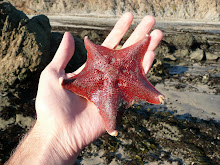
May 26, 2008
"Went to the fabulously beautiful Yeşil Camii just as 20 year old İsmil was opening the place. He spoke some english (a rarity here) and we talked about the early Sultans. He took me to the usually closed Sultan's balcony booth and helped me find the spinable vertical cylinders that were installed by the original architects to test the "health" of the building. If they spin, all is well. If not, the supports are bearing too much pressure. The cylinders became unspinable about four years ago. The mosque was built by Mehmet I in the early 15th Century after he had salvaged the Empire following the rampage of Tamerlane (one of the most interesting figures in history). "
The man who guided us around explained the fountain inside the mosque -- very unusual -- was built so that when the Sultan held secret meetings in his balcony rooms, the water's sound would cover the conversations. Also that the ground-level shelves in the mosque's center were for people to discreetly leave food, if they could, or take food, if they needed.
Outside the mosque my father joked with a handful vendors selling trinkets. I only caught snippets of the conversation, but it ranged from bragging about his father the Congressman, about his grandfather, the pasha who owned the entire state of İzmit, and about himself, claiming to be something like the Godfather back in the States. (Yes, as in Marlon Brando.) These and other tall tales had everyone laughing and shouting back, but hardly matching his silliness and pomp.
The man who guided us around explained the fountain inside the mosque -- very unusual -- was built so that when the Sultan held secret meetings in his balcony rooms, the water's sound would cover the conversations. Also that the ground-level shelves in the mosque's center were for people to discreetly leave food, if they could, or take food, if they needed.
Outside the mosque my father joked with a handful vendors selling trinkets. I only caught snippets of the conversation, but it ranged from bragging about his father the Congressman, about his grandfather, the pasha who owned the entire state of İzmit, and about himself, claiming to be something like the Godfather back in the States. (Yes, as in Marlon Brando.) These and other tall tales had everyone laughing and shouting back, but hardly matching his silliness and pomp.
Later in the day, Judy, Kate (or Suzan, as she insisted we call her) and took a taxi up the hill to the castle and Tophane area to see the tombs of Osman, founder of the Ottoman empire, and his son Orhan, who conquered Bursa, made it the empire's first capital, and during whose reign many elements of modern Turkish culture (such as architecture) were established. In Osman's tomb, although its size and design reminded me of a chapel, I was surprised to see an older couple praying, as if they had gone there to pay homage. What did that mean for them, exactly, that their prayers include the return of the Empire?
In Orhan's tomb, just a few steps away, across a shady patio, I first shooed away a kid insistenly selling packets of facial tissue, but after reflecting on the place and taking a photo, I reconsidered my automatic reaction. I called him over and gave him a coin, calling him "little brother," one of the many affectionate and respectful forms of address people use for strangers all the time. Soon he was out the door, buying simit, a ring of sesame bread, from a white-haired man with a wooden-glass cart that looked like a carriage.

No comments:
Post a Comment